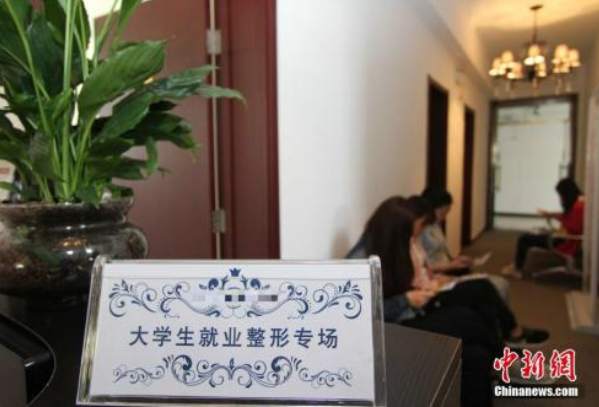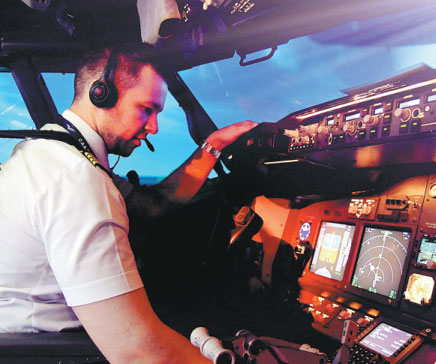(Peoples Daily Online)13:16, July 03, 2019![]()

A plastic surgery clinic offers dedicated service for college graduates. (Photo/Chinanews.com)
Cosmetic surgery is growing in popularity among Chinese university students, and even younger middle school students, Chinanews.com reported on July 2.
18-year-old Shen Hui (pseudonym) will start her college life in September. She decided to enhance her appearance with double eyelid surgery, which is her priority this summer after the college entrance examination.
鈥淧eople tend to judge a person by external appearance. I cannot lose marks on that part,鈥?said Shen, who believed she鈥檒l have an easier time finding friends, a romantic relationship, or even a job with a prettier face.
Shen is just one such graduate who dreams of becoming beautiful through plastic surgery.
Shen introduced that one of her close friends also plans to have an epicanthoplasty, otherwise known as eyelid surgery, to make her eyes look bigger and wider, while another will go for facial fat grafting surgery.
On June 12, Shen, accompanied by her mother, walked into a cosmetic surgery hospital in Shanghai. They were told the earliest reservation for a double eyelid surgery would be in late June.
Summer vacation is a hot season for student customers, said Xu Xiaofei, a plastic surgeon from Shanghai-based Basilica Clinic. The number of patients in June, July and August is generally 80 percent higher than that of other months, owing to the increase of student patients.
As such, many agencies have introduced various discount campaigns to lure in more young customers.
China鈥檚 plastic surgery market hit over 220 billion yuan in 2018, according to a survey report. Among all customers, those aged between 20 and 25 accounted for 40.4 percent, which was the highest, while those under 19 took almost 20 percent.
In a survey report, more than half of females who have had plastic surgery did it to please themselves, while 19 percent of respondents said they did it due to job demands.
Meanwhile, more male college students, especially those studying fine art, are seen in plastic surgery clinics today. Their average expense on plastic surgery reached 7,025 yuan, 2.75 times the average female spending.
Guo Shuzhong, head of the First BCC Plastic Surgery Hospital in Beijing, told Chinanews.com that children under 18 are suggested not to have plastic surgery, as their bones are still developing.
Guo also warned those who pursue a prettier face not to follow the trend blindly.



